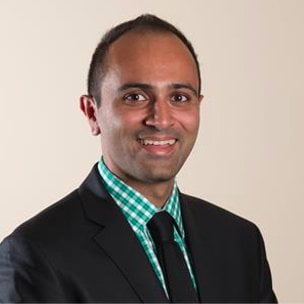There has been a lot of recent buzz and media attention around some proposed tax changes from the Canadian government. We’ve noticed that there is a lot of misconception and confusion regarding some of these changes, so we hope to provide some clarity into some of the issues as they affect small business and in particular, incorporated physicians.
For the purposes of this article, the CanadiEM Editorial team has joined forces with Mrs. Kirsten Nugent, a Chartered Professional Accountant, to help provide an simple, apolitical overview of the current situation and the changes proposed that would impact physicians.
What is the current situation?
It has been estimated that approximately 70%1 of Canadian physicians are incorporated as small businesses. Similar to other small businesses, physicians: rent office space, pay for medical equipment, and hire employees. The government’s recently proposed tax changes allege that the tax benefits received by physicians (and other small business owners) through incorporation give them an unfair tax advantage.
There are two major benefits of incorporation that are relevant to physicians: income splitting and the investment of retained funds.
- The investment of retained funds: Physicians who have Medical Professional Corporations have their income directly paid to their corporation, and are subsequently paid a salary or dividends from there. Money that is earned by the physician’s corporation is utilized to pay for corporate taxes, operations, dividends and employee salaries. Any money that is left over can be invested within the corporation. This strategy is used by physicians (and small business owners) who do not receive pensions to save for retirement and/or save for parental or sick leaves.
- Income splitting: The income earned and placed in a corporation can be paid out as dividends to both the physician as well as their other adult family members. This is beneficial as it reduces a family unit’s overall income tax burden by allowing money to be paid out to a family member subjected to a lower personal tax bracket.
Both of these noteworthy benefits will be impacted within the new proposal put out by the Federal government and will no longer be available for incorporated doctors.
Exactly what tax changes are being proposed?
- Income from investments made within the corporation are to be allocated to the Physician, not the Corporation: The income earned from investments within the corporation will no longer be taxed at the lower corporate rate; but the physician’s personal tax rate instead. This would effectively eliminate the ability of physicians to invest for retirement within their corporations through stocks, bonds, and real estate (e.g.: if a physician receives rental income from other’s in an office building that they own for their practice, this would be taxed at the physician’s personal tax rate).
- Introducing the “Reasonableness Test”: The government wants to ensure that wages to employees and dividend payments made to those other than the working physician are reasonable (i.e.: did the family member actually work in the company? Did they provide any capital?). If the money distributed is deemed to be “unreasonable” the funds would be automatically subject to the highest personal tax rates. This change would eliminate the ability of physicians to split their income with their spouse or other adults relatives to lower their overall personal tax bill.
What impact will these changes have?
The real heart of the issue for these proposed changes lies in the question of “tax fairness”; the idea that the system for taxation is equivalent for all citizens, with minimization of legislation and rules that would unfairly benefit one portion of taxpayers over another. While this theoretically sounds straightforward, there are many variables and complexity.
The Federal Government states that these changes designed to increase taxation on the wealthy. However, the Canadian Federation of Independent Business (representing over 100,000 Canadian members) suggests that these changes will also impact many ‘middle class’ small business owners while not affecting the ‘mega rich’ (e.g. company CEO’s with significant stock options)2.
When considering the tax fairness of retained earnings within a corporation, versus the benefits received by company employees, there are several important differences. Specifically, because they are effectively operating a small business, physicians working within their own corporation do not receive sick time, vacation days, parental leave, or pensions.
- Sick time, vacation and parental leave: When a physician is not working for any of these reasons, their corporation earns no income (i.e.: physicians are only paid when they work, they are not provided an salary). Further, if they work in a practice with overhead for hiring employees, paying for medical equipment, renting an office and paying general office expenses, these costs must still be paid even when they are not working. With the current rules, physicians can plan for these eventualities by saving and investing money within their corporation, so that they can continue to provide themselves with income or dividends during periods that they are not working. This is particularly disadvantageous for female physicians who may not want to, or be capable of working surrounding the birth of their child3. Conversely, employees of a company or organization (i.e.: the government) receive all these benefits.
- Pensions: Employees receive pensions that are funded in part by their pre-tax income, in part by their employer and are able to grow tax-free until they begin paying out in retirement at a lower tax rate. Historically, physicians have instead paid for retirement by saving within their corporation. Without the benefits of corporations, physicians will only be able to save money for retirement that they have already been taxed on fully. The impact of this is confounded, because most physicians begin their practice with significant debt (often > $200,000) and cannot begin saving for retirement until 6-11 years later than others with a university degree. This gives them significant less time to save for retirement and benefit from long-term investments. In comparison, a small business owner who completed an undergraduate degree and MBA may still be in business almost a decade earlier than a physician.
- Income Splitting: To simplify – suppose you have a family with a single employer earning $200,000 a year versus a family with both partners earning $100,000 a year. Despite the fact that the annual household income is the same, the family with the single employer earning $200,000 per year pays significantly more tax. While this may not seem fair, it is the reality for employees in Canada and would no longer be an option for physicians and small businesses.
There have been some in the medical community, who in light of these changes, have suggested that physicians should have access to traditional employee benefits such as sick time, vacation pay, parental leave, employment insurance, and pension contributions if they lose the advantages of incorporation4. Some have called this proposition ‘naive’, but it stems from physicians concerns about their ability to plan for their future.
Conclusions
In this post we have aimed to explore the impact of the proposed changes as neutrally as possible. Regardless of your opinion on any of these issues, we believe that it is imperative that everyone educate themselves regarding the proposed changes and their prospective implications. We welcome your thoughts and opinions below, and hope to generate some thoughtful discussion.




